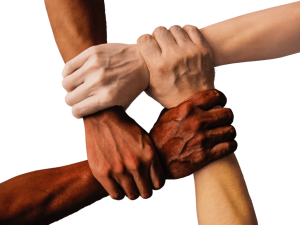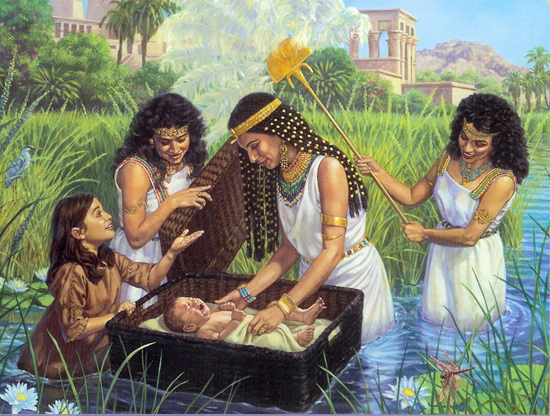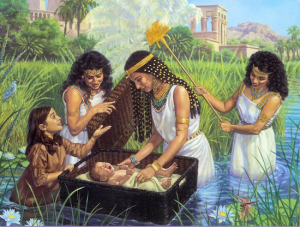Mazel tov again to Gabriel Leifer upon his most amazing wedding this past Sunday and what a wedding it was, to his beautiful kallah, Avigail Hackel, she the daughter of Mr. and Mrs. Shlomo Hackel. Mazel tov to Gabriel’s parents, our friends, Astrid and Mordecai Leifer (Mord), and to the entire extended Liefer and Guttmann families. Mazel tov to Gabriel’s grandparents, friends of many decades, Sarah and Moishe Leifer who hosted sheva brochis this past Wednesday and to Astrid’s parents, Lieve and Joseph Guttmann. May Avigail and Gabriel be a source of much nachas to their families.
Big mazel tov wishes to the Kaufmans, the Littons and the Shaulsons upon the wedding this past Sunday of Rachel Litton to Shmuel Shaulson. Mazel tov to all the siblings, uncles, aunts, cousins and to the extended families. Reports out of Miami earlier this week, have it that the wedding was as beautiful as is the kallah. May Rachel Elizabeth and Shmuel Eliezer merit to enjoy many decades of blissful marriage. The Oisvorfer looks forward to participating in Sheva Brochis this coming Shabbis.
And from Riverdale New York, a big mazel tov to the Ostros, the Sugarmans, the Barnehamas, (parents and grandparents), and of course to Ariel and Jason Sugarman, upon the birth and bris earlier this week of their first-born son Abie, who was named in memory of grandparents who have passed. Welcome to the world and may you be a source of nachas to the many who love you forever.
And in news from Brooklyn…mazel tov to Rivka and Daniel Gohari, upon the celebration this coming shabbis (and to be continued on January 30th ) of their son Michael. Mazel to the entire extended Gohari and Hatanian mishpochot; may Michael and his siblings bring you much nachas.
On the Other Hand:
Welcome to Parshas and Sefer Shmois where, after a bunch of years –exactly how many is of course a debate that has lingered for generations- the RBSO decided to free his soon to be Chosen People from slavery and take them out of Egypt. Why were the Yiddin enslaved to begin with? Ver veyst? What terrible crimes did they commit? Ver veyst? We don’t really know because the RBSO never told us. All we know with certainty is that He foretold of Jewish slavery to our forefather Avrohom, but he too wasn’t given the rationale. One day when the Moshiach arrives -maybe from Crown Heights, ver veyst- and, if you’re still longing for an answer, mistama he will have one. In the meantime, we continue to read the heylige Toirah and yearly discuss and argue over kimat every word, sentence and chapter; efsher that’s what the RBSO had in mind to begin with. It’s the gift the Yiddin received as a wedding present but 50 days after being released from Mitzrayim; it keeps on giving.
So happens that despite the slavery which is described in not too many pisukim before it’s suddenly about to be over, Shemois is a feel good parsha, especially for women as a number are shouted out for the roles they played in carrying out the RBSO’s master plan. That master plan seemingly involved a person by the name of Moishe who was designated to do the RBSO’s bidding, to lead the Yiddin out of Mitzrayim for the next forty years, ober first he needed to be born. What to do? As in the past, and with a flair for the dramatic, the RBSO arranged for a 130 year-old woman (recall Soro Emanu getting pregnant at age 89 and having a baby at 90) to become suddenly rejuvenated (resume her menstrual cycle) in advance of conceiving a baby. We have previously discussed Moishe’s mother Yoicheved who seemingly remarried her ex husband Amrom in order for him to father Moishe. Why he left her and who arranged the reconciliation (hint: according to our sages, it was none other than 6 year old Miriam, Moishe’s big sister), has all been covered in previous postings, and avada you are urged to go back and read a few in the archives at www.oisvorfer.com. Grada, at a bris the Oisvorfer attended in Riverdale earlier this week, a newish reader by the name of Jerry Gil told me he did just that.
The bottom line: several women, some Jewish, others not, played significant roles in this week’s parsha; let’s briefly meet them. Let’s shout out Shifra and Puah, the midwives –some say these two women were none other than Miriam and her mother Yocheved. The heylige Toirah also shouts out Bisya and her maidservants; each of these women played a role in either the birth, and or, the raising of baby Moishe whom we meet for the first time. Yashar koiach to them all, job well done!
Medrish tells us that Miriam seemingly coaxed her father into re-marrying her mother -no simple task convincing a man to marry a 130 year old woman- Yoicheved who conceived, gave birth, built her unnamed baby a little ark and sent him floating down the Nile, making baby Moishe the first Jew to enjoy a river cruise. Unnamed baby? Is that taka emes? That doesn’t epes sound right and says the heylige Gemora (Soita 12a), quoting and then expounding these words from our parsha “And she saw that he was good” (Shemois 2:2), azoy: R’ Meir says his [Moishe’s] name was Tov. R’ Yehuda says his name was Tuvia. Others, as we shall soon read, suggest he was born circumcised. Shoin! He seemingly did have a name. And says the heylige Gemora (Megillah 13a), he had many names and the Gemora lists a number of names Moishe had. They include: Yered, Gedor, Chever, Shuchu, Yekusiel, Zanoach. Who needs that many names? Later in the parsha we will learn that Moishe fled Mitzrayim and was on the lam for decades. It’s possible that he used each of his names at some point while a fugitive from Paroy who was out to kill him. Says the medirsh (Yalkut Shimoni 166): each of his names was given to him by another person or group: his father called him Chever, his mother called him Yekusiel, Miriam called him Yered, etc. It does seem from the context that at least some of these were bestowed on him after Paroy’s daughter named him Moishe, ober that too for another day. According to some, his given name was Avidgor, ober the heylige Toirah is silent on this topic. How the medrish figured this out, ver veyst?
 Inspired by Moishe’s river cruisier, centuries later, Toirah inspired entrepreneurial Yiddin would come up with glatt-kosher river cruises . Bisya, Paroy’s shiksa daughter, accompanied by her servants went down to the edge of the Nile where baby Moishe was spotted floating in his waterproof basket. Was Bisya taka a Mitzri shiksa princess? Was she really Paroy’s daughter? Or, was she efsher a nice Jewish girl who happened to have been adopted by Paroy? Shoin, those questions too have been asked and answered in older postings. In any event, between Miriam who kept an eye on the floating ark, Bisya and her girls, and let’s not forget Yoicheved to whom Moishe was brought for nursing purposes –having seemingly rejected the breasts of several others shiksas who tried nursing him, baby Moishe survived his ordeal. It’s not every day that a nice Jewish baby, boy, or man, turns down the shiksa breast; special he certainly was.
Inspired by Moishe’s river cruisier, centuries later, Toirah inspired entrepreneurial Yiddin would come up with glatt-kosher river cruises . Bisya, Paroy’s shiksa daughter, accompanied by her servants went down to the edge of the Nile where baby Moishe was spotted floating in his waterproof basket. Was Bisya taka a Mitzri shiksa princess? Was she really Paroy’s daughter? Or, was she efsher a nice Jewish girl who happened to have been adopted by Paroy? Shoin, those questions too have been asked and answered in older postings. In any event, between Miriam who kept an eye on the floating ark, Bisya and her girls, and let’s not forget Yoicheved to whom Moishe was brought for nursing purposes –having seemingly rejected the breasts of several others shiksas who tried nursing him, baby Moishe survived his ordeal. It’s not every day that a nice Jewish baby, boy, or man, turns down the shiksa breast; special he certainly was.
Unlike our heylige Ovois (forefathers) who are featured in but three or four parshas, (Yaakov appears in more), Moishe’s name will appear in every single parsha but one from here until we complete the cycle of Toirah reading with V’zois Habrocho before we begin all over again. In fact, later in Sefer Devorim, Moishe will appear to be alive and well even after his death, ober that controversy also for another day.
This week we shall take a look at one, maybe two pisukim that seems to have gotten the attention of our sages. The heylige Toirah tells us that Moishe grew up and went out to see how his brethren were doing, to see the suffering of “his people.”
| יאוַיְהִ֣י | בַּיָּמִ֣ים הָהֵ֗ם וַיִּגְדַּ֤ל משֶׁה֙ וַיֵּצֵ֣א אֶל־אֶחָ֔יו וַיַּ֖רְא בְּסִבְלֹתָ֑ם וַיַּרְא֙ אִ֣ישׁ מִצְרִ֔י מַכֶּ֥ה אִֽישׁ־עִבְרִ֖י מֵֽאֶחָֽיו: |
“And it came to pass in those days, when Moishe was grown up, that he went out unto his brethren, and looked on their burdens; and he saw an Egyptian smiting a Hebrew, one of his brethren.”
Note: for my newish readers, those that just signet up in the last few weeks and those somewhat limited in their Yiddish, the word azoy, means “like this.”
 His brethren? What’s pshat? Wasn’t Moishe raised as an Egyptian? How was it that Moishe went out to see how his brethren were faring? Did we not read and recall how baby Moishe was fetched out of the waters by Bisya, Paroy’s own daughter? We did? And did we not learn that after being weaned by his real mother, that he was returned by his whet nurse (his own mother) to the kings’ palace where he seemingly enjoyed a charmed life? We did! Was he not considered an Egyptian prince? He was! And what our sages want to know is this: how was it that Moishe knew to check on his brethren? How did he know that the enslaved Yiddin were really his people? Had he, for some unknown reason abdicated? Was he, like Prince Harry seeking financial independence? Did he convert o Judaism because it offered a charmed life? Growing up in the king’s palace as an Egyptian, how would he know that he was of a member of team Yiddin? Let’s find out what a few had to say. Did someone inside the palace walls leak the information? Was the King’s palace, a forerunner of the White House plagued by leakers?
His brethren? What’s pshat? Wasn’t Moishe raised as an Egyptian? How was it that Moishe went out to see how his brethren were faring? Did we not read and recall how baby Moishe was fetched out of the waters by Bisya, Paroy’s own daughter? We did? And did we not learn that after being weaned by his real mother, that he was returned by his whet nurse (his own mother) to the kings’ palace where he seemingly enjoyed a charmed life? We did! Was he not considered an Egyptian prince? He was! And what our sages want to know is this: how was it that Moishe knew to check on his brethren? How did he know that the enslaved Yiddin were really his people? Had he, for some unknown reason abdicated? Was he, like Prince Harry seeking financial independence? Did he convert o Judaism because it offered a charmed life? Growing up in the king’s palace as an Egyptian, how would he know that he was of a member of team Yiddin? Let’s find out what a few had to say. Did someone inside the palace walls leak the information? Was the King’s palace, a forerunner of the White House plagued by leakers?
Says the Rambam it’s quite poshit: he knew because the Mitzrim (the Egyptians) told him and shoin. Ober, why would they do that? According to this view, they did tell him as a way of denigrating him. “Hey, I know you think you’re the prince, but actually, your people are those slaves…” Ouch!
Ober, says the Abarbanel, that’s not emes. Who then told him? Efsher his mother Yoicheved, who raised him for the first part of his life. Avada that’s logical as Moishe was zicher very connected to the woman who raised him, who suckled him, and to her children. After he grew up, he knew from them the truth of the matter, that he was a Hebrew child.
 Ober says the ‘מעשי ה: “…….but in my opinion this is not correct. … It seems to me that when Yoicheved brought Moishe to the daughter of Paroy, as a nursemaid brings a child to his mother, Moishe thought that he was the son of Paroy’s daughter, and this is the meaning of the words in posik 10 “and he was to her a son.” To correct this impression, she then named him Moishe, in Hebrew, so that he would know that he was a child of the Hebrews, and not her son. In other words: Paroy’s daughter Bisya told him. Case closed? Not! Because, says the Sifsay Koihen: the RBSO Himself told Moishe. Ay (ober) does the heylige Toirah tell us that? Not. Not to worry: Moishe found out in dream-like fashion. Not exactly a dream but through prophecy. Where the heylige Toirah tells us “and Moishe grew up” what it means to tell us is this: Moishe “grew into prophecy.” In other words: when he grew up – we may assume age of 13- the RBSO imbued him with prophetic power skills and with his new skillset, he was able to figure out that he was indeed a Jewish person. Gishmak! To bolster his opinion that Moishe was now on the receiving end of “nivuah” (prophecy), he points to another case with similar language where Shmuel Hanovee began receiving his prophetic visions. Says the Novee (1 Shmuel 3:19), azoy: And Shmuel grew, and the Hashem was with him, and did let none of his words fall to the ground. In other words: when Shmuel grew up, the RBSO imbued him with prophecy. Moishe too was imbued when he grew up and with his newly-acquired prophetic powers prophesied, and knew that the exiled ones were his brothers. The bottom line: Moishe found out directly from the Source; it doesn’t get better.
Ober says the ‘מעשי ה: “…….but in my opinion this is not correct. … It seems to me that when Yoicheved brought Moishe to the daughter of Paroy, as a nursemaid brings a child to his mother, Moishe thought that he was the son of Paroy’s daughter, and this is the meaning of the words in posik 10 “and he was to her a son.” To correct this impression, she then named him Moishe, in Hebrew, so that he would know that he was a child of the Hebrews, and not her son. In other words: Paroy’s daughter Bisya told him. Case closed? Not! Because, says the Sifsay Koihen: the RBSO Himself told Moishe. Ay (ober) does the heylige Toirah tell us that? Not. Not to worry: Moishe found out in dream-like fashion. Not exactly a dream but through prophecy. Where the heylige Toirah tells us “and Moishe grew up” what it means to tell us is this: Moishe “grew into prophecy.” In other words: when he grew up – we may assume age of 13- the RBSO imbued him with prophetic power skills and with his new skillset, he was able to figure out that he was indeed a Jewish person. Gishmak! To bolster his opinion that Moishe was now on the receiving end of “nivuah” (prophecy), he points to another case with similar language where Shmuel Hanovee began receiving his prophetic visions. Says the Novee (1 Shmuel 3:19), azoy: And Shmuel grew, and the Hashem was with him, and did let none of his words fall to the ground. In other words: when Shmuel grew up, the RBSO imbued him with prophecy. Moishe too was imbued when he grew up and with his newly-acquired prophetic powers prophesied, and knew that the exiled ones were his brothers. The bottom line: Moishe found out directly from the Source; it doesn’t get better.
Let’s review? How did Moishe find out that he was not a real Egyptian prince but instead a nice Jewish boy from elderly parents? Let’s review what we know based on pisukim in the parsha:
- Paroy’s daughter finds Moishe, saying “this baby is a Hebrew!” The bottom
line: she zicher knew and did not hide the facts; she did not lie to her father. - Moishe’s sister (who is known to Paroy’s daughter) suggests finding a Hebrew nurse for him. Bottom line: both Bisya and Miriam knew.
- Miriam gets approval from Bisya and fetches Moishe’s (and her) own mother to nurse him.
- Some chunk of Moishe’s childhood passes (while being nursed) with him in his mother’s care, presumably in the presence of his other family members, two of whom have been mentioned thus far and lots of time to inform him of his heritage.
- Later – after some time- he returns to the palace.
So, who told him? There are four possibilities: four possible ways for Moishe to have known he was Jewish:
- His mother/family told him-
- Bisya told him-
- He found out by supernatural means-
- Everyone knew; it was the hock in town and he too heard-
Another bottom line: as the Oisvorfer’s father told him on many an occasion: a secret between two people is only secure under one condition: when one person is dead! It’s hard to keep a secret and we have to assume that someone told him. Be it his real mother Yoicheved, his sister Miriam, his father Amrom, or his older brother Aharoin. Says Rashi: it was evident from the beginning that he was an Ivri, a term used before the Ivrim were officially known as Yiddin.
Any other possibilities? Of course! And we turn our attention to the great Achroin (latter day commentator) Wikipedia who seems very knowledge. Says he when expounding on the Disney show ‘The Prince of Egypt,’ that Moishe dreamt that he was Jewish and confronted Paroy, who then admitted as much. Givaldig and seemingly just as logical as the other possibilities. Was Moishe the first adopted child to confront his parents seeking to find out more? Perhaps.
Any more ideas and sources? Yes! And let’s dig deeper, maybe even undercover. According to other sources, Moishe knew something was up when he discovered that he was circumcised. Taka a small clue, if you chap. On the other hand, that could not have been the giveaway as many Mitrzim were also circumcised. Ober did the goyim undergo circumcision? Typically not: ober let’s recall how Yaakov got the Shechemites to undergo a mass circumcision in order for their sons to marry his daughters. Then again, they were all killed by Shimoin and Levi. Ober, let’s also recall –how according to the medrish- Yoisef had many -some say all- the Mitzrim circumcised in his day; he had them cut down to size. Food for skin! Yoisef did what? Let’s go back and revisit the scene. The heylige Toirah in Miketz relates how the seven years of plenty came to an end as foretold by Yoisef, and “… the entire land of Egypt hungered, and the people cried out to Paroy for bread; and Pharaoh said to all the Egyptians: ‘Go to Yoisef (and) do what he will tell you.'” Says Rashi: “For Yoisef was telling the Mitzrim to circumcise themselves, and when they came to Paroy and said ‘this is what he tells us [to do],’ Paroy supported Yoisef’s orders. Who can argue with that medrish?
Moreover, let’s not forget that according to another pshat -also medrish- Moishe was indeed born fully circumcised and discovering his zach, if you chap, as most kids do, he was tipped off, if you chap, that he was taka Jewish.
On the other hand, does not the heylige Toirah tell us befeirush (in plain Hebrew) how Bisya upon seeing him exclaimed, “a child of the Hebrews!” it does. And did she not send for a Hebrew nursemaid for him? Indeed she did. On the other hand, just because she knew doesn’t mean she told him. Wanting to raise him as her own and even naming him, doesn’t provide proof that she informed him of his adopted linage. On the other hand, we also see read how Miriam duped her into sending for Moishe’s own mother, and that he was not “brought to Pharaoh’s daughter to be as a son” until he had grown up somewhat. Says the heylige Toirah the lad grew up and was brought by Yoicheved to Bisay, Paroy’s daughter. Seems like his own family had enough time to tell him the emes. On the other hand, was Moishe efsher white while the Mitzrim fully tanned, if you chap? Did he suspect something was a shtikel off color? Yikes!
The bottom line: the RBSO’s master plan, a subject we mention quite often, included a shiksa princess by the name of Bisya who was selected for the role and did what was expected, perhaps more. The RBSO did not forget her and says the medrish azoy: She was highly praised by our sages of the medrish (Tadshe, Ozar ha-Midrashim [ed. Eisenstein], p. 474)., and is included among the devout women converts. That list includes: Avrohom’s second wife Hogor, Yoisef’s wife Osnas, Zipporah, Shiphra, Puah, Rochov who was either ran innkeeper or a harlot who did good things wither body, Rus and Yael the wife of Chever the Kenite The medrish specifically praised Bisya Paroy’s daughter for her rescue of Moishe, thereby aiding in the exodus of all the Israelites from Mitzrayim. Moishe was raised in her home, by a woman who believed in G-d. She radiated warmth and loved him as if he were her own son, and accordingly was richly rewarded. Later, she married Kolave the son of Yiphuna and joined the people of Israel. We have previously discussed how much the RBSO loves Yiphunah; seemingly He also loved his wife. Some midrashim attest to her longevity and claim that she entered the Garden of Eden while still alive. She did?
Bisya did not die; she was among those who entered Gan Eden (Garden of Eden) while still alive where she was eventually joined by a number of others who also did the right thing in the eyes of the RBSO. That list includes Serach bas Asher who helped Moishe find Yoisef’s bones as the Yiddin left Mitzrayim, and a few other notables. Says another medrish (Eishes Chayil 31:15): she was so privileged because she cared for Moishe (rescued and raised him). Another medrish ((Kallah Rabbati ) has the RBSO saying: “Since this one brought salvation to Israel and brought them forth to life, I shall prolong her life. I shall reward this one, who left her father’s royal house and adhered to Israel.” Moreover, this same medrish attributes the salvation of the Yiddin to the daughter of Paroy because she saved Moishe from death, and thereby facilitated the redemption of Israel from Mitzrayim by means of their leader Moishe. Bottom line: when the RBSO takes a shine to you -Jewish or not- good things happen. Gishmak.
A gittin Shabbis-
The Heylige Oisvorfer Ruv
Yitz Grossman

